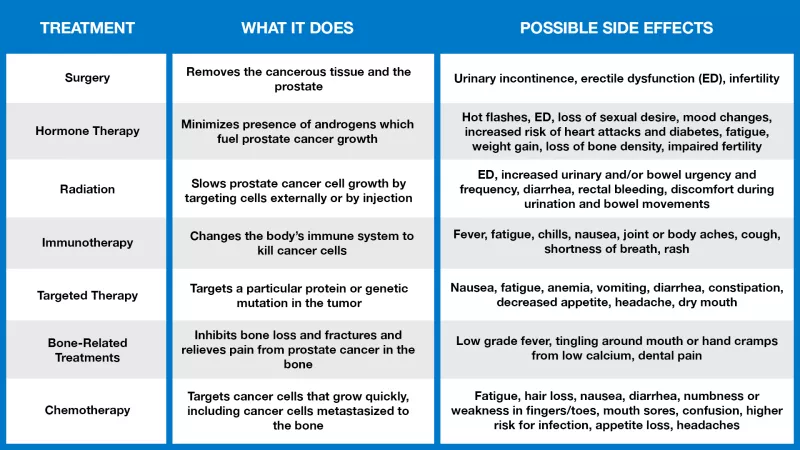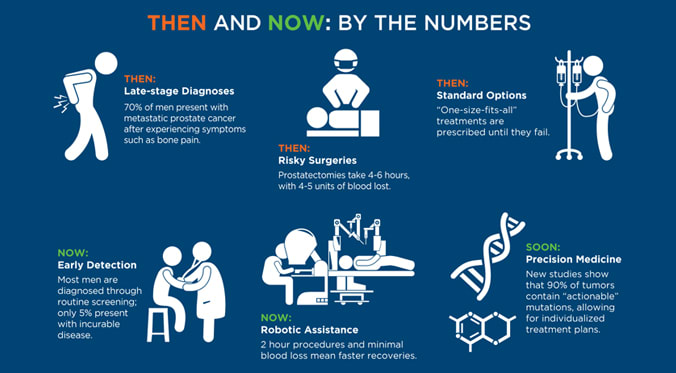3 Simple Techniques For Best Prostate Cancer Doctor In Mumbai
3 Simple Techniques For Best Prostate Cancer Doctor In Mumbai
Blog Article
Prostate Cancer Treatment: Surgical and Non-Surgical Approaches Explained
When encountered with a prostate cancer medical diagnosis, the array of therapy options can appear frustrating. This extensive review aims to drop light on the intricacies of prostate cancer therapy, offering understandings right into the ins and outs of each method to encourage people in making informed choices regarding their health and wellness.
Surgical Treatment Choices
When considering medical therapy alternatives for prostate cancer cells, clients and doctor frequently evaluate the advantages and dangers connected with various procedures. One common surgical approach is extreme prostatectomy, which involves the removal of the whole prostate gland. This procedure is usually suggested for people with localized prostate cancer cells and offers the possibility for a cure. However, extreme prostatectomy can result in side results such as urinary system incontinence and impotence.
One more surgical option is robotic-assisted laparoscopic prostatectomy, a minimally invasive procedure that uses a robot system to help the surgeon in removing the prostate. This technique can lead to less blood loss, much shorter hospital remains, and much faster healing times compared to typical open surgical procedure. It likewise brings the risk of issues such as infection and injury to surrounding body organs.
Inevitably, the option of surgical therapy for prostate cancer cells depends on different elements including the phase of the cancer, the person's overall health and wellness, and their choices relating to prospective negative effects and healing times. Consulting with a multidisciplinary team including urologists, oncologists, and radiation oncologists can help people make notified decisions regarding one of the most suitable surgical technique for their private situation.

Non-Surgical Therapy Alternatives
Taking into consideration choices to medical interventions, non-surgical treatment options for prostate cancer deal individuals additional avenues for handling the disease while reducing possible medical threats. One non-surgical technique is Energetic Surveillance, where clients with low-risk prostate cancer cells are monitored closely with regular examinations, blood examinations, and biopsies, without undergoing instant treatment. This method intends to avoid unneeded treatment and its involved adverse effects, such as incontinence and erectile dysfunction.
Another non-surgical alternative is Radiation Therapy, which utilizes high-energy rays to kill cancer cells (Best prostate cancer hospital in India). This treatment can be provided externally using a maker (External Light beam Radiation) or inside through little contaminated pellets put near the tumor (Brachytherapy) Radiation therapy can be made use of as a key therapy or in mix with various other therapies, such as hormonal agent therapy
Furthermore, Hormonal Agent Therapy is a non-surgical method that aims to minimize the levels of male hormones (androgens) in the body, as these hormones can sustain the growth of prostate cancer cells. By obstructing or lowering androgen levels, hormone therapy can reduce down cancer cells development and eliminate symptoms in advanced cases.
Robotic-Assisted Surgery for Prostate Cancer

One of the vital advantages of robotic-assisted surgical treatment for prostate cancer cells is its ability to reduce the risk of difficulties and adverse effects generally linked with open surgery, such as blood loss, discomfort, infection, and extended recuperation times. Clients undergoing robotic-assisted procedures frequently experience much shorter healthcare facility remains, less postoperative pain, and much faster return to regular tasks. Additionally, the minimally intrusive nature of robot surgical procedure commonly results in smaller incisions, causing improved aesthetic end results and minimized scarring for clients. On the whole, robotic-assisted surgical treatment stands for a sophisticated strategy to prostate cancer cells therapy that incorporates technological innovations with medical experience to enhance client end results.
Radiation Therapy for Prostate Cancer Cells
Making use of sophisticated radiation modern technology, radiation therapy plays a critical function in the extensive therapy of prostate cancer. Radiation treatment uses high-energy radiation to ruin cancer cells and diminish lumps. It is a common therapy choice for prostate cancer cells, either as a key therapy or in combination with surgical treatment, hormone treatment, or go to this site chemotherapy.
There are 2 primary kinds of radiation therapy made use of for prostate cancer cells: outside light beam radiation treatment (EBRT) and brachytherapy. These seeds send out radiation that eliminates the cancer cells over time.
Radiation treatment for prostate cancer is extremely effective, with high cure rates, specifically for localized cancer. It is also a valuable choice for people who might not be ideal candidates for surgery. Like any kind of therapy, radiation therapy may have negative effects, such as urinary problems, fatigue, and skin irritation, but these are often short-term and manageable.
Hormonal Agent Therapy for Prostate Cancer Cells
Hormone treatment is a generally made use of therapy approach for prostate cancer cells monitoring. Hormonal agent treatment, also known as androgen deprivation therapy, intends to reduce testosterone levels in the body or block the hormone's impacts on the prostate cancer cells, thus reducing down the condition's progression.
There are different sorts of hormone treatment for prostate cancer cells, including drugs that reduced testosterone degrees (such as luteinizing hormone-releasing hormonal agent agonists and antagonists), or medicines that obstruct testosterone from getting to cancer cells (like anti-androgens) Hormonal agent therapy can be made use of alone or in combination with other treatments like radiation treatment, relying on the phase and aggression of the cancer cells.
While hormonal agent treatment can effectively regulate prostate cancer cells growth, it may come with adverse effects such as warm flashes, loss of libido, impotence, and weakening of bones - Best prostate cancer hospital in India. Normal tracking and discussions with health care carriers are vital to take care of these negative effects and make sure the therapy's efficiency
Conclusion
In conclusion, the therapy alternatives for prostate cancer include non-surgical and medical approaches such as robotic-assisted surgery, radiation treatment, and hormonal agent treatment. Each method has its own benefits and dangers, and content the selection of therapy depends upon different aspects such as the phase of cancer cells and general health and wellness of the individual. It is essential for individuals to discuss these choices with their doctor to establish the most suitable training course of activity for their individual scenario.

Utilizing sophisticated radiation modern technology, radiation therapy plays a vital function view in the detailed therapy of prostate cancer. It is an usual treatment choice for prostate cancer, either as a main therapy or in combination with surgical procedure, hormone treatment, or chemotherapy.
Radiation treatment for prostate cancer cells is highly efficient, with high treatment rates, particularly for local cancer cells.Hormonal agent therapy is a frequently made use of therapy strategy for prostate cancer cells management.In verdict, the therapy alternatives for prostate cancer cells include medical and non-surgical strategies such as robotic-assisted surgical treatment, radiation treatment, and hormonal agent treatment.
Report this page